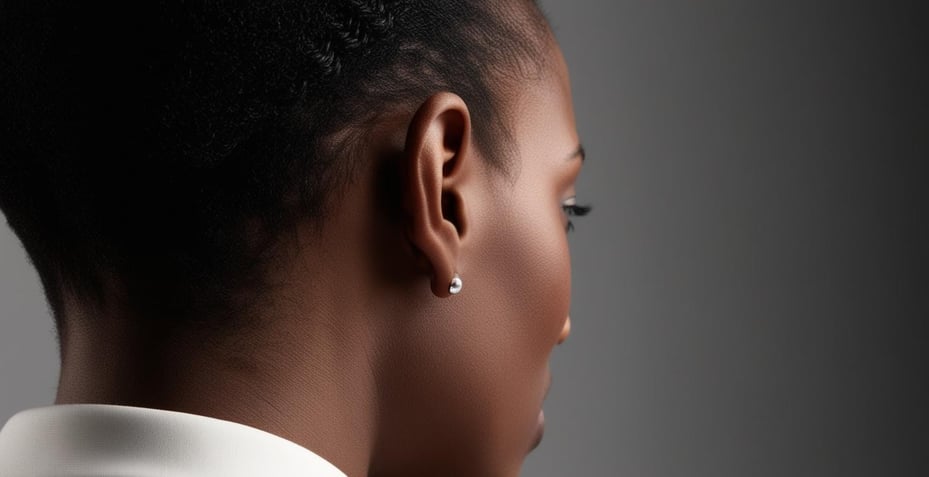The Transformative Power of AI in Audiology: A Game Changer for Africa
Discover how AI is transforming audiology in Africa, improving diagnostics, personalizing care, and expanding access to hearing solutions.
MEDICINE
2/24/20252 min read


Artificial intelligence (AI) is revolutionizing audiology, enhancing diagnostic precision, personalizing treatments, and expanding access to hearing care. In Africa, where hearing loss affects approximately 136 million individuals — a number projected to rise to 337 million by 2050 — AI-driven solutions are proving transformative.
Enhancing Diagnostic Accuracy
Traditional audiological assessments often rely on subjective interpretations, leading to potential inconsistencies. AI algorithms, however, can analyze complex auditory data swiftly, identifying patterns that may escape human analysis. This helps to facilitate early detection of hearing disorders and allows for timely interventions. Timely interventions can also reduce the risk of further complications. For instance, AI-powered diagnostic tools can assess speech and language patterns, offering insights into cognitive and linguistic aspects related to hearing impairments. Supporting these impairments will allow individuals to thrive and develop successful communication skills. This not only has immediate benefits but helps to ensure that these individuals can fully integrate into the workforce of the country over their lifetime and avoid becoming reliant on charitable or government aid.
Personalized Hearing Solutions
AI enables the customization of hearing aids to meet individual needs. By analyzing a user's auditory profile, lifestyle, and preferences, AI algorithms can tailor devices to enhance speech recognition, reduce background noise, and improve overall sound quality. Modern hearing aids equipped with AI can adapt in real-time to changing environments, learning from user interactions to provide a seamless listening experience. This personalization is crucial in diverse African settings, where environmental sounds vary widely — especially at social events, which are often crowded and present challenging listening environments.
Expanding Access to Hearing Care in Africa
AI-driven initiatives are bridging the gap in historically limited access to hearing care in Africa by leveraging widely available technologies like smartphones. Hearing care providers can now use smartphone apps to conduct hearing assessments. These apps, equipped with AI, can perform accurate tests and facilitate the immediate fitting of hearing aids, programmed via Bluetooth to match the user's specific hearing profile. This approach has helped to increase accessibility to even more rural areas and helped to transform the lives of people, enabling them to reengage with their communities.
Community-Based Hearing Care Models
Local community members can be trained to assist hearing assessments using AI-powered screening apps. These tools allow for efficient hearing assessments where the results can be communicated to parents digitally. Local programs not only help to increase access to hearing care but also raise awareness about hearing health at the grassroots level — a critical need in Africa.
Challenges and the Path Forward
While AI offers promising solutions, challenges remain. The "AI divide," data privacy concerns, and the need for local language support are significant hurdles. For AI to be truly beneficial in Africa, technologies must be adapted to local contexts and supported by robust infrastructure. Collaborations between governments, tech companies, and healthcare providers are essential to integrate AI-driven hearing care into existing health systems effectively.
In conclusion, AI is poised to transform audiology globally, with particular benefits for Africa. By enhancing diagnostic accuracy, personalizing treatments, and expanding access through community- based models, AI-driven solutions are addressing the continent's unique challenges in hearing healthcare. Continued innovation and collaboration are key to ensuring these technologies reach those most in need, fostering a future where hearing loss no longer impedes one's quality of life.
For further information on Hearing Healthcare and to further discuss its progression in Africa feel free to contact Dr Elizabeth Adesugba, Doctor of Audiology and Registered Hearing Aid Dispenser, Jovon Hearing Ltd, Mediserve www.jovonhearing.co.uk info@jovonhearing.co.uk
AI Afrique
Connecting AI experts with mentees, and supporting peer collaboration.
info@aiafrique.org
© 2024. AI Afrique. All rights reserved.
